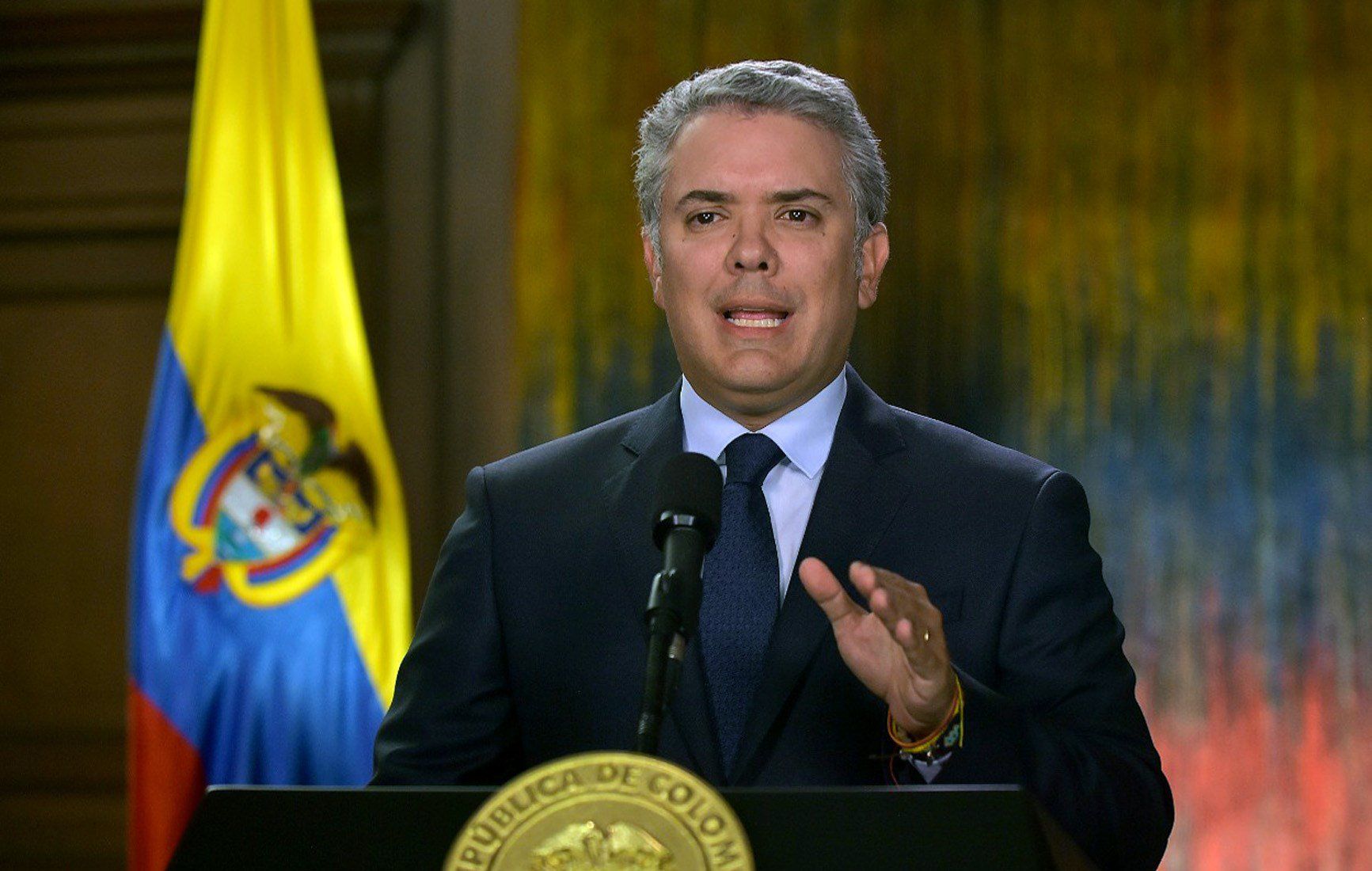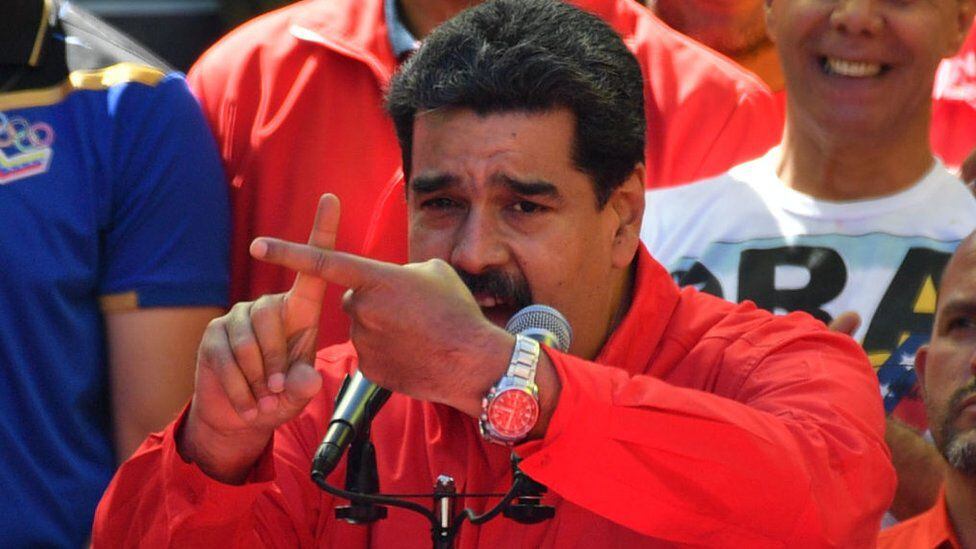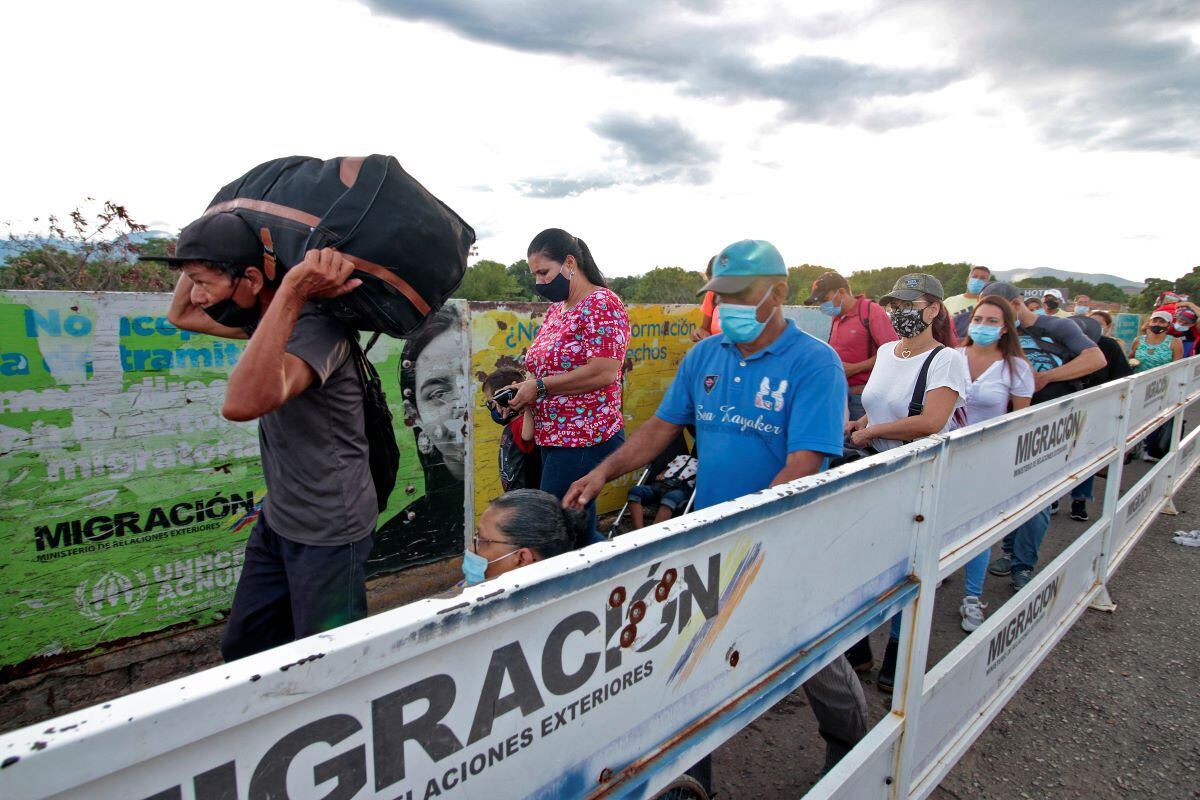Some of the most enthusiastic international congratulations he received Gustavo Petro after being elected as the first leftist president of Colombia they came from Venezuela. The Chavista leader Nicolás Maduro did not take long to celebrate the result and affirm that “new times are in sight” for the coffee country. The number two of his regime, Diosdado Cabello, went a little further and considered that Petro’s victory changes “radically” relations between the two countries.
LOOK: Juan Guaidó hopes that Gustavo Petro maintains “protection” for Venezuelans
“Undoubtedly, a new space opens up for the Colombia that we all want, not the Colombia of the oligarchy, but the Colombia of the Colombian people. A new space for dialogue opens. It radically changes the relationship with Venezuelawith the mere fact that the oligarchy ceases to govern, there is already a profound change in the relationship with our country”, said the leader in a press conference.
The victory of Petro, a 62-year-old economist and former guerrilla fighter, has raised doubts about the future of relations between the two countries. The leftist will replace Iván Duque as head of the Colombian government from August 7, whom Chavismo has considered for years its main political enemy along with the United States.
“Chavismo is going to have its communication party and they are going to turn Petro’s victory into a defeat for Juan Guaidó in Colombia because there is a redoubt of Guaidó’s people in Colombia that is important in terms of international actions. That Maduro is going to exploit”Venezuelan political analyst José Carrasquero tells El Comercio.
In recent years, Chavismo has frequently accused Duque of being behind coup attempts in Venezuela. Colombia’s outgoing president led regional pressure to remove Nicolás Maduro from power.
One of the most tense points in the relationship between the two countries came in 2019 when Caracas broke off relations with Bogotá after Duque recognized the opposition Juan Guaidó as interim president of Venezuela. The main allies of the latter went into exile in Colombia.
As a consequence, there are no consulates or direct flights and the border remained closed between 2019 and October 2021, which seriously affected bilateral trade.
Although the future of relations with Venezuela did not attract as much attention in this campaign, Petro’s public statements and positions on the subject allow us to foresee a notable turn in the deal with Caracas.
How much could their relationship change?
Faced with the ghosts of association with Chavismo, Petro distanced himself from the Maduro regime during the electoral campaign, even calling it a “dictatorship.” However, he has made it clear that he will restore relations with Venezuela, leaving behind three years of tensions and serious differences between Caracas and Bogotá.
Carrasquero recalls that in electoral campaigns all candidates tend to mask their real positions. “It doesn’t take much for politicians to soften their position on an issue, and that was what Petro did at the time. It is well known that Petro and Maduro orbit in that international socialist current that seeks to export socialism to all of Latin America.“, it states.

For the expert, it is clear that Petro and Maduro belong to the same orbit, they support the Sao Paulo Forum and, in any case, they are ideological partners. With this, the first thing that will change is the formality. “There will be a recognition of Maduro by Petro and the acceptance of a Maduro ambassador”, highlights Carrasquero, who sees as a positive result that the consulates of both countries are going to start operating, which will make life easier for the Venezuelan citizen in Colombia and the Colombian citizen in Venezuela.
Colombian political analyst Jairo Libreros speaks along the same lines. “It will be a change from heaven to earth,” he tells this newspaper and adds that from August 7 there will be no room for a diplomatic fence between the two countries.
“President Gustavo Petro is going to restore, at least on the Colombian side and pending a reciprocal measure, commercial and economic exchange on the border with Venezuela, especially Cúcuta and Norte de Santander. In the short term, no later than October, we will already have consular relations and very surely in December, for the CELAC summit in Buenos Aires, diplomatic relations would have been officially re-established.“, considers.
Precisely, Diosdado Cabello stated days ago that, after Petro’s triumph, “it seems” that the Community of Latin American and Caribbean States (Celac) and the Union of South American Nations (Unasur) will be “strengthened”. He added that he “ends up burying a disastrous thing called the Lima Group (block of countries opposed to the Bolivarian revolution)”.
Regarding Petro’s position on Maduro, Libreros points out that the Colombian president-elect knows that Venezuela’s is a regime branded as a dictatorship. “But he starts from the assumption that it is better to have communication than to maintain the diplomatic siege that has proven to be a failure. The problem is that when you reestablish those relations, you turn your back on Juan Guaidó and the Lima Group. Both Juan Guaidó and the Lima Group are mortally wounded in the political sense”, he points out.

The migration challenge
A key issue between the two countries – which share a porous border of more than 2,200 km – is migration. Colombia hosts two of the six million Venezuelans who have migrated due to the crisis in their country, whom Duque has regularized so that they can work and access public services.
Colombian immigration authorities have delivered one million regularization documents to Venezuelan migrants since the implementation of the Special Temporary Protection Statute began a year ago.
Carrasquero and Libreros do not expect changes in Colombian immigration policy with Petro in power, nor do they believe that any type of persecution against Venezuelan migrants is supported.
“For Petro, the temporary protection statute formulated by Iván Duque is an initiative that is well underway. What I would believe is that the mechanisms will be strengthened to guarantee a better adaptation and assimilation of Venezuelans to the Colombian culture, economy, society and education. From this point of view, Venezuelans fleeing the dictatorship, as well as other migrants, will have the opportunity to integrate better and more safely into Colombian life,” says Libreros.

For his part, Carrasquero emphasizes that he does not believe that Petro is going to persecute Venezuelan migrants. “It will simply have a policy, perhaps more, of putting that issue in the background, but I do not see that there will be something against the Venezuelans. On the contrary, I believe that an opening of the borders is coming and the rescue of an important trade for both countries because they are border countries that share a very wide border and where there has usually been a very important commercial exchange.”, he points.
He adds that, despite the fact that Maduro will want to use Petro’s victory in his favor, the issue of relations with Colombia does not have much impact within Venezuela. “People in Venezuela are aware of something else. People are not aware of what happens in Colombia or elsewhere, people are aware of surviving”, he comments.
Source: Elcomercio
I, Ronald Payne, am a journalist and author who dedicated his life to telling the stories that need to be said. I have over 7 years of experience as a reporter and editor, covering everything from politics to business to crime.

:quality(75)/cloudfront-us-east-1.images.arcpublishing.com/elcomercio/GI4DCMRNGA3C2MJUKQYDAORSHA.jpg)





